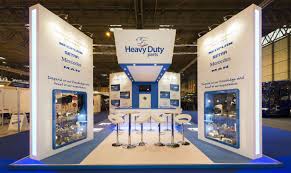Common Misconceptions About Aluminum Framing Durability
When people think about framing materials, they often overlook just how strong and versatile aluminum can be. Misunderstandings about its capabilities can lead to hesitations in using it for larger or more demanding projects. Let’s clear up some common myths and uncover why aluminum framing is a top choice for modern construction.
Myths About Aluminum Framing Being Too Lightweight for Heavy-duty Projects
A common misconception is that aluminum, being lightweight, lacks the strength required for heavy-duty applications. In reality, this material offers an impressive strength-to-weight ratio, outperforming many other materials. It can support significant loads without adding unnecessary weight, making it ideal for construction projects where efficiency and durability are critical.
The lightweight nature of aluminum framing doesn’t mean it sacrifices sturdiness. Engineers often choose it for its ability to handle demanding structural needs while maintaining a sleek and modern appearance. Its performance in high-stress scenarios debunks the myth that lightweight equals weak, proving it to be a reliable choice across various industries.
Confusion Around Aluminum’s Ability to Handle Extreme Weather Conditions
Some believe that aluminum can’t hold up under extreme weather conditions, but this couldn’t be further from the truth. Its natural resistance to corrosion and temperature fluctuations makes it well-suited for outdoor and exposed applications. Whether facing heavy rain, snow, or intense sunlight, aluminum framing maintains its integrity without warping or weakening.
Additionally, aluminum’s ability to withstand harsh climates doesn’t require excessive maintenance. Coatings and anodized finishes further enhance its durability, protecting it against the elements. This combination of resilience and low upkeep makes it a go-to material for environments where weather conditions are unpredictable and demanding.
False Assumptions About Wear and Tear in Industrial Applications
Industrial settings demand materials that can handle constant use and occasional rough handling. Some assume aluminum framing might wear out quickly in such conditions, but its natural durability tells a different story. This material is built to last, resisting dents, scratches, and fatigue even in high-traffic environments.
Its performance in factories, warehouses, and other industrial spaces demonstrates its reliability. Aluminum framing retains its functionality and appearance over time, making it a cost-effective choice. Dismissing it as unsuitable for industrial use overlooks its proven track record in environments where durability is non-negotiable.
Misunderstandings About Corrosion Resistance in Challenging Environments
A significant myth is that aluminum is prone to rust and corrosion, but it’s quite the opposite. Aluminum naturally forms a protective oxide layer, which acts as a shield against moisture and oxygen. This makes it inherently resistant to rust, even in humid or coastal areas where other metals might struggle.
For added protection, aluminum framing can be treated with specialized coatings, extending its lifespan in particularly harsh environments. Its resilience to corrosive elements ensures it remains a dependable option, even in conditions that would quickly degrade other materials. This makes it a practical solution for projects requiring long-term durability.
Inaccurate Beliefs About Aluminum Framing and Structural Strength
Some argue that aluminum isn’t strong enough to support large-scale projects, but this belief doesn’t account for modern engineering advances. Aluminum alloys are designed to enhance the material’s natural strength, making it a competitor to steel in many structural applications. Its strength ensures stability while allowing for creative and complex designs.
The structural reliability of aluminum framing has been tested and proven in numerous high-stakes scenarios, from skyscrapers to heavy machinery. Its ability to balance strength with versatility challenges outdated notions, showcasing it as a material that doesn’t just meet expectations but often exceeds them.
Overlooked Facts About Aluminum’s Longevity Compared to Other Materials
There’s a misconception that aluminum doesn’t last as long as other materials, but it actually holds up exceptionally well over time. Its resistance to environmental factors, combined with its low-maintenance needs, allows it to retain its performance and appearance for decades.
Unlike materials that degrade or require frequent replacements, aluminum framing offers a lasting solution. This longevity not only reduces long-term costs but also minimizes environmental impact. Choosing aluminum framing is a decision that pays off in both durability and sustainability.
Common Doubts About Aluminum Framing’s Ability to Resist Impact and Stress
It’s easy to assume that a lightweight material might not handle impact or stress well, but aluminum framing regularly proves this wrong. Its ability to absorb shock without deforming makes it a reliable choice for applications where durability under pressure is essential. From construction sites to transportation infrastructure, aluminum shows its strength.
Whether facing physical stress or unexpected impacts, aluminum framing remains stable and secure. This dependability under tough conditions highlights its versatility, making it a material that delivers on all fronts, regardless of the challenges it faces.





